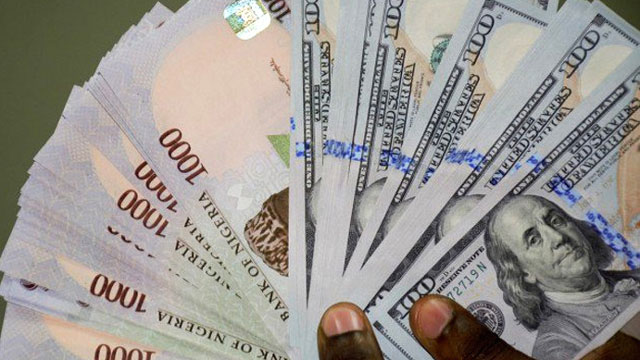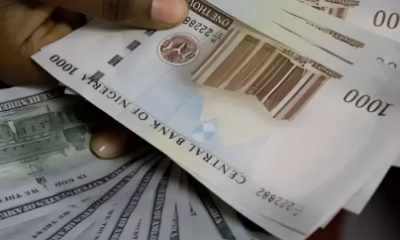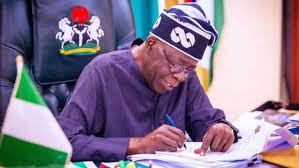The Naira on Tuesday, April 24, appreciated to N360 to the dollar at the investors’ window, after depreciating for five consecutive days.
Traders at the market expressed confidence in the ability of the CBN to maintain the stability of the Naira at the foreign exchange market.
Findings by National Daily revealed that the local currency maintained the N445 per Euro rate it closed at on Monday, April 23.
The Nigerian currency gained 54kobo to exchange at N360, stronger than N360.54 traded on Monday, April 23, while it was sold at N305.7 to the dollar at the CBN window.
Trading at the Bureau De Change (BDC) window saw the Naira close at N362 to the dollar while the Pound Sterling and the Euro closed at N510 and N445, respectively.
The Naira exchanged at N362 to the dollar at the parallel market, while the Pound Sterling and the Euro closed at N510 and N445, respectively.
Traders at the market expressed confidence in the ability of the CBN to maintain the stability of the Naira at the foreign exchange market.
According to financial experts, with the 22billion dollars Diaspora remittance recorded in 2017 and the increase in external reserves to about 47 billion dollars, the Naira may be on its way to greater stability.
Recall that in continuation of its intervention in the interbank segment of the foreign exchange (forex) market, the Central Bank of Nigeria (CBN) last week made available another $210 million in the market to meet the requests of customers.
A breakdown of the figures made available by the Bank indicated that the CBN offered the sum of $100 million to authorised dealers in the wholesale segment of the market, just as it allocated the sum of $55 million each to the small and medium scale enterprises (SMEs) segment and the invisibles segment to meet needs tuition fees, medical payments and Basic Travel Allowance (BTA), among others.
Confirming the intervention, a statement quoted the CBN Acting Director in charge of the Corporate Communications Department (CCD), Isaac Okorafor, said the continued intervention by the Bank was in line with the Governor’s commitment to ensure liquidity in the market as well as reduce pressure on the naira.
According to him, the Bank would not relent in its effort to manage the country’s forex with a view to reducing its import bills and checking any haemorhage of its foreign reserves.

 Health5 days ago
Health5 days ago
 Entertainment6 days ago
Entertainment6 days ago
 Crime5 days ago
Crime5 days ago
 Education7 days ago
Education7 days ago
 Health7 days ago
Health7 days ago
 Comments and Issues6 days ago
Comments and Issues6 days ago
 Football6 days ago
Football6 days ago
 Latest6 days ago
Latest6 days ago













